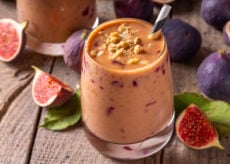Can Junk Food Be Good for You? You May Be Surprised
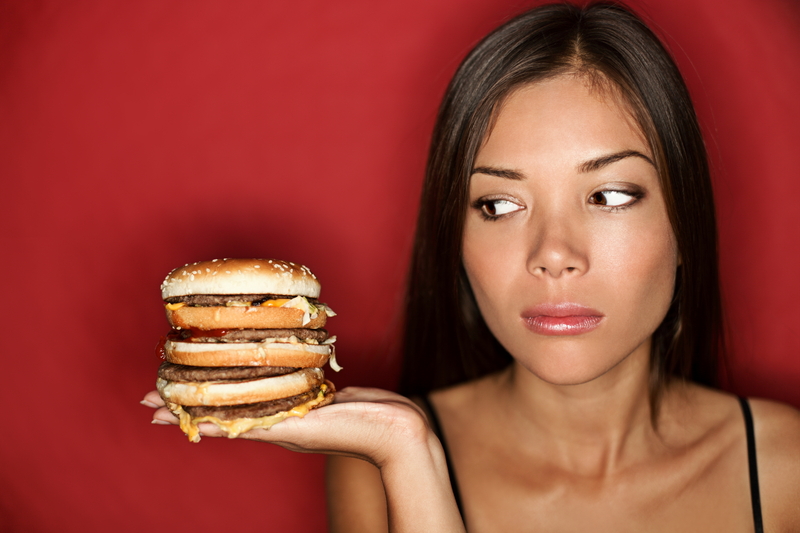
Junk food: it’s tasty, convenient, cheap, and available just about everywhere. No wonder it’s so popular.
But junk food and fast food are typically high in sugar, fat, and salt, yet low in nutrition. Plus, they’re so addicting! Who can stop with just one French fry, chip, or cookie? In fact, one company who shall remain nameless has built their slogan around this. And, too much leads to serious health consequences like obesity, heart disease, Type 2 diabetes, cancer, and dozens of other diseases.
While there are many reasons to eat more healthy, whole, nutrient-rich foods, including plenty of vegetables and fruits, quality proteins, and whole grains, does that really mean all “junk food” is forever off the table? Does junk food have any redeeming qualities? Could it be that junk food actually offers benefits?
First off, not all junk foods are unhealthy or high in calories. And, not all so-called healthy foods are all that, well, healthy. After all, there are a lot of foods labeled “healthy” that are high in calories, saturated fats, and refined carbohydrates—some are much higher than common fast-food items. And some junk foods provide nutrients our bodies (or souls) crave.
In other words, there are exceptions to every rule. People can overeat healthy whole foods just as they can overeat any other foods.
Food Labels: Neither Good Nor Bad
Labeling foods as either good or bad, healthy or junk, clean or dirty, nutritious or shameful isn’t helpful when it comes to eating smart for the long haul. Worse, for some folks who have battled with weight loss, yo-yo dieting, or eating disorders, it can trigger shame and guilt and an unhealthy relationship with food, thus hindering healthier lifestyle changes and making it harder to reach goals.
According to the Academy of Nutrition and Dietetics (AND), there is room for all types of foods in your diet. Labeling individual foods as inherently good or bad is overly simplistic. Instead, what’s most important is that “the total diet or overall pattern of food eaten is healthy.” 1
While it is important to eat food that nourishes the body, provides nutrients, and fuels your day, food is also fun. So, even if a certain food isn’t loaded with nutrition, it can still serve a purpose. We eat not only to fuel our bodies but to connect socially with others, for pleasure, to feel relaxed and satisfied, and more.
Orthorexia: An Unhealthy Obsession
Focusing on eating only for health can actually lead to an unhealthy eating behavior called orthorexia. Orthorexia is an unhealthy obsession with eating only healthy foods, which can negatively interfere with home and job life as well as social situations. It leads to distress when you don’t eat on plan or if something interferes with your diet. Yet it’s impossible for the vast majority of us to stick to a “perfect” eating plan all day, every day.
Research has even found that following an all-or-nothing, strict diet with no “bad” food allowed can actually lead to overeating and weight gain. 2 People who try to be ultra-strict over the weekend were found in research to be the most likely to gain weight over the year. 3 This is likely because limiting food choices to do’s vs. don’ts can cause you to feel deprived, which can lead to a cycle of craving and bingeing.
It’s also been found to increase the risk of disordered eating as well as anxiety and depression around food. 4 Folks who try to follow overly restrictive diets find it more difficult to maintain a healthy weight compared to those who allow more flexibility in their dietary choices.
Healthy Junk Foods?
“Junk food” is always unhealthy, right? Not necessarily. There are many foods that are considered either junk or fast that provide nutrients like folate, vitamins A, B6, B12, protein, calcium, iron, and others to help fuel the body—as long as they’re not overconsumed.
Some popular choices include:
• Dark chocolate, made from at least 70% cocoa and low in sugar, provides protein and fiber with a rich, decadent flavor.
• Air-popped popcorn is a healthy whole-grain snack that will fill you up as you watch your favorite movie or conquer a late-night deadline. Butter or oil with a sprinkle of salt are the usual toppings, but other tempting options include chili powder, cinnamon with Swerve or stevia, and parmesan cheese or nutritional yeast for a cheesy corn.
• Ice cream is a go-to treat for every occasion, especially when the weather is hot. It also provides protein and calcium, and some versions also provide B vitamins and probiotics. Some of the best-tasting (and most nutritious) options are those you make yourself.
• Potato chips are high in fat and calories, so how could they possibly be part of a healthy diet? As long as you stick to a single serving and choose a brand that skips unhealthy additives like MSG and refined oils, you don’t need to give up this indulgence. Oven-baked versions provide just as much crunch and far fewer calories.
• Another “junk food” there’s no need to avoid is a dip, which goes really well with chips as well as veggies. Bean dips, hummus, and creamy Greek yogurt dips aren’t even considered cheats as they provide loads of nutrition along with their delicious flavors.
• Angel food cake is fat-free and low in calories compared to many other cakes, yet it also provides healthy protein by way of whipped egg whites. Top it with some fresh berries and have your cake and antioxidants too!
BREAKING: Forget Taking Collagen, Try This 21-Second Trick for Healthier Skin & Hair Instead
• A one-cup serving of Froot Loops provides 110 calories and actually has 3 grams of fiber and 10 grams of sugar, which is a similar ratio to many so-called healthier cereals. It’s certainly not a health food, and sticking to the portion size is important, but it can help cure the craving for cereal.
• Cookie, cookie, cookie! Again, eating an entire plate of hot-from-the-oven cookies isn’t part of a healthy diet. But that doesn’t mean you have to give them up. Instead, sit down and savor a couple of Newman-O’s chocolate crème-filled cookies (which are lower in oil and sugar than Oreos), or crumble one up over a creamy smoothie bowl for a decadent, cravings-crushing dessert. Or choose one of Coach Cristina’s many delicious cookie recipes like:
• No-Bake Vegan Protein Cookies
• Trail Mix Cookies
• Peanut Butter Cookies
• Cranberry Pistachio Scones
• Despite the name, sweet potato fries are low in sugar yet high in fiber and vitamin A. To cut calories yet enjoy all the flavor these delicious treats provide, they can be made in an air fryer or even baked in the oven.
• Cheese is often shunned due to its high-calorie density. Yet it adds so much flavor and is a good source of protein and calcium.
• Whole-grain crackers provide more fiber than white crackers, which helps improve satiation even with a smaller serving size.
• Chicken nuggets, tenders, or fingers are highly snackable and a fan favorite at most fast-food restaurants. Yet again, these can easily be made at home for a more flavorful and filling option that’s still finger-licking good. Healthy fried chicken is another easy weeknight dinner.
In other words, no foods are completely forbidden, and many “junk foods” do provide essential vitamins, minerals, and macronutrients. Plus, one single food does not define an entire diet.
How and why you’re consuming any food, though, is worth examining, especially if you feel triggered to eat more than you want, you feel ashamed or guilty during and after eating, or if you feel depressed, lonely, or sad after eating.
Notice your thoughts, feelings, and behaviors and set up guardrails to avoid impulsive overeating, such as allowing yourself to indulge in certain sets and settings, and schedule time and portions sizes for your favorite foods to better shape your environment for success.
For example, if donuts are an absolute favorite, don’t just get the discount box and bring it home to tempt you throughout the day. Instead, invite a friend, partner, or child to go get a single donut and enjoy catching up and spending time together.
Or intentionally enjoy a serving of ice cream after Friday night family dinners.
Or snack on a couple of dark chocolate squares with an espresso (or decaf) or cup of tea to help overcome an afternoon slump.
Or, get together every Saturday with some buds to enjoy an afternoon hike or bike ride followed by some chips, dips, and a beer.
Finding Success Through Flexibility
If the goal is a long, healthy life, then eating whatever you want, whenever you want—especially if your diet is made up of mostly junk food and you’ve been gaining weight—likely isn’t possible. To maintain a healthy balance, 70 to 90% of your calories should come from nutrient-dense whole foods, including vegetables, fruits, quality proteins, and whole grains.
The other 10 to 30%, however, can come from whatever foods you like, and that includes “junk food” like chips, fast food burgers, ice cream, pizza, cake, etc.
It’s true! You don’t have to eat perfectly to make great progress toward your goals. Yes, even if your goal is to become the healthiest and fittest you’ve ever been.
Eating foods for fun—including for birthdays and holidays or just because—is actually an important part of a healthy lifestyle. Plus, completely abstaining from junk food isn’t necessary, sustainable, or enjoyable. And let’s face it, for the vast majority of us, we’re going to eat “junk food” anyway. So, it’s better to give up the guilt in advance, and thus avoid the obsession with food, anxiety around food, and potential disordered eating that comes from severe food restriction.
Virtually all foods can be good, or bad, depending on the quantity and how often and why you partake. A healthy diet isn’t about all or nothing, and a treat from time to time can actually help you stick to your diet and lose weight. That doesn’t mean going overboard and bingeing to the point of feeling stuffed, lethargic, and sick, which can also delay how long it takes to reach your goals. Instead, enjoy your favorite foods intentionally, mindfully, and regularly, which can then help you consume less over time (and skips the whole binge-guilt cycle).
Making small changes can allow you to enjoy your favorite foods because you want to, because you enjoy them, because they fit into your lifestyle—not just because they’re there and diets don’t work anyway.
Yes, junk food can be part of a healthy diet. It’s about finding a healthy balance that feeds your mind, body, and soul. So go ahead, swap the guilt for pleasure, savor the food slowly, and enjoy it. And if you do go overboard, forgive yourself, learn from it, and move on while creating better guardrails for the future.


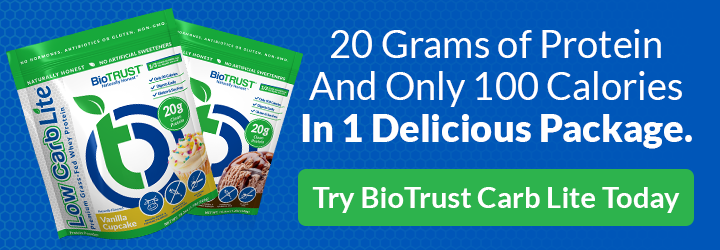

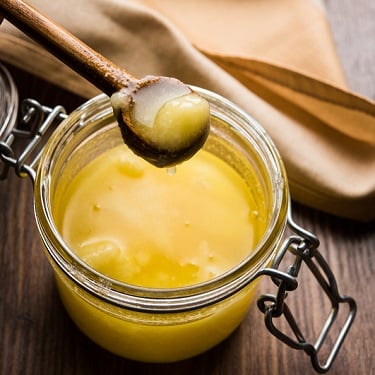 US Doctor: "Eating This Every Day Can Snap You Into Ketosis"
US Doctor: "Eating This Every Day Can Snap You Into Ketosis"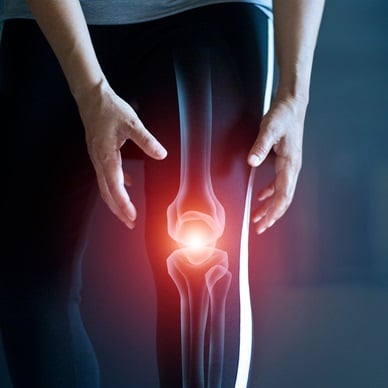 3 Key Nutrients to Help Lubricate Your "Tin Man" Joints
3 Key Nutrients to Help Lubricate Your "Tin Man" Joints AVOID Plant-Based Protein Powders (unless...)
AVOID Plant-Based Protein Powders (unless...)
